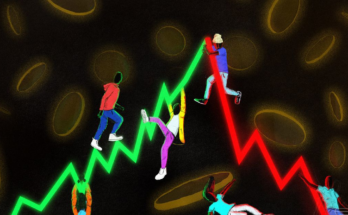Last week, when Elon Musk tweeted that he had spoken with the team of Doge developers about how to make the coin more efficient, the impact was predictable: It sent the price of Dogecoin to the moon. It was just the latest in a series of Musk declarations that has sent the viral coin on a roller coaster over the past few weeks.
And yet it caught Doge’s core development team by surprise, says Michi Lumin, a Colorado-based developer who helps maintain the cryptocurrency. Yes, the Tesla and SpaceX billionaire has been “spitballing ideas” with the team for some time, Lumin says, including about how to make Dogecoin more efficient. They welcomed his input. But he says the intense spotlight from Musk’s recent string of Doge-boosting and Bitcoin-bashing tweets has been a little stressful, inviting scorn from critics who see Doge as merely a joke and sending the market into convulsions. Their coin might be based largely on hype, but they had planned to remain discreet.
“We’re not Eloncoin,” he says. Except, it seems, for whenever Musk decides to tweet.
Musk’s influence is not limited to Doge. Last week, Musk also tweeted that, due to climate concerns, Tesla wouldn’t accept Bitcoin in exchange for cars, three months after he first said that it would. Good on Elon. As WIRED has written about numerous times, Bitcoin uses enough energy to power a mid-size country, and a sizable (though vigorously contested) portion comes from fossil fuels like coal. The big mystery is why this wasn’t an issue to Musk only a few months before. Maybe it’s a green marketing move or some kind of regulatory preempt. Or perhaps it’s just a troll meant to make us all contemplate the worth of things for tautology’s sake.
Whatever the rationale, Musk is creating and destroying small fortunes, 280-characters at a time. “It seems very scary and deeply irrational,” says Jill Carlson, a blockchain-focused investor at Slow Ventures. When Musk first announced Tesla would take Bitcoin for cars—and that the company was buying $1.5 billion worth of it—he sent the value spiking. When he backed down last week, the news erased $300 billion from the market within minutes. His subsequent denunciations over the weekend, including a Sunday tweet that suggested Tesla may have already offloaded its Bitcoin holdings, sent the price still lower. (He later clarified the company hadn’t sold.)
Meanwhile, his periodic tweets mentioning Dogecoin, usually heavier on jokes than substance, send that market into fits of exuberation—though last week he went on Saturday Night Live and called it “a hustle,” so it tanked, until he single-handedly brought it back to life with the greenification tweet.
“I’m not comfortable with any one person or small entity being able to manipulate the market. I guess that’s where we are in crypto right now,” says Lumin, the Doge developer. “It’s not great, that’s for sure.”
Perhaps it’s five-dimensional chess, or maybe it’s just whimsy. After all, Doge is a slightly weird choice to champion as an eco-friendly alternative. It runs on a similar, energy-intensive system to Bitcoin’s, and there are plenty of cryptocurrency alternatives that use cleaner methods, none of which merit mention on Musk’s Twitter feed. Over the weekend, he suggested that if his Dogecoin plans didn’t work out, he would create a cryptocurrency from scratch himself. “He seems to be primarily motivated by his own entertainment on the Dogecoin front,” Carlson says. “He goes wading into these big problems and then sets it up so he can enter as the hero.”



